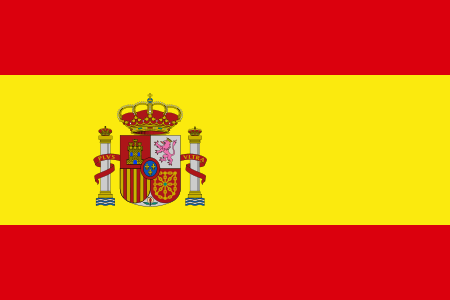Microsoft CEO Satya Nadella’s biggest regret is giving up Windows Phone
In a recent interview with The Wall Street Journal, Microsoft CEO Satya Nadella revealed what he regretted most during his tenure at the helm of the tech giant: giving up Windows Phone, the company’s mobile operating system that competed with Android and iOS.
Nadella, who took over as CEO in 2014, said he wished he had invested more in developing Windows Phone and creating a viable alternative to the dominant platforms of Google and Apple. He said he felt Microsoft had missed an opportunity to be a leader in the mobile market, which he sees as one of the most important areas for innovation and growth.

«I wish we had done more on mobile devices,» Nadella said. «I wish we hadn’t given up on Windows Phone. That was perhaps one of the biggest mistakes I made.»
Windows Phone was launched in 2010 as the successor to Windows Mobile, which had been losing market share to Android and iOS. Windows Phone featured a distinctive tile-based interface and integrated well with other Microsoft products and services, such as Office, Outlook, Skype and Xbox. However, Windows Phone struggled to gain traction with consumers and developers, who preferred the larger and more diverse app ecosystems of Android and iOS.
Microsoft attempted to boost Windows Phone’s prospects by acquiring Nokia’s mobile division in 2013 for $7.2 billion, hoping to leverage the Finnish company’s hardware expertise and brand recognition. However, the deal proved to be a costly failure, as Microsoft wrote off $7.6 billion in 2015 and laid off thousands of employees from the Nokia unit.
En 2017, Microsoft había abandonado efectivamente Windows Phone y anunció que ya no desarrollaría nuevas funciones o hardware para la plataforma. En cambio, Microsoft cambió su enfoque hacia la creación de aplicaciones y servicios para Android e iOS, como Edge, Cortana, Office y OneDrive. Microsoft también lanzó su propio teléfono inteligente basado en Android, Surface Duo, en 2020, que presenta un diseño de pantalla dual y se integra con las herramientas de productividad de Microsoft.
Nadella said he learned from the failure of Windows Phone and applied those lessons to other areas of Microsoft’s business, such as cloud computing, artificial intelligence, gaming and mixed reality. He said he realized that Microsoft needed to become more agile and innovative in order to compete with rivals and meet the changing needs of its customers.
«I think we’ve done a good job of going from where we were to where we need to be,» Nadella said. «We’ve been able to reinvent ourselves in multiple categories.»
Nadella’s admission of major regret comes as Microsoft is enjoying solid performance in both its core and emerging businesses. The company reported record revenue of $168 billion for its fiscal year 2021, up 18% from the previous year. Its cloud division, Azure, grew 51%, while its gaming division, Xbox, grew 34%. Microsoft also saw growth in its Surface devices, its LinkedIn network and its Teams collaboration platform.
Despite his regrets about Windows Phone, Nadella said he is optimistic about Microsoft’s future and its ability to create value for its customers, partners, employees and shareholders.
«I think we have a lot of opportunities ahead of us,» Nadella said. «We have a lot of work to do, but we have a lot of confidence in our capabilities.»
Microsoft CEO Satya Nadella recently sat down for an interview with Bloomberg Insider, where he covered topics ranging from family to leadership to artificial intelligence. But in one of his most surprising confessions, he admitted that he regretted «giving up cell phones.»
«I think the decision that a lot of people talk about, and one of the hardest decisions I made when I became CEO, was our exit from what I’ll call cell phone as it was defined then,» Nadella said when asked about his strategic mistake or decision he regrets. «In retrospect, I think there might have been ways we could have made it work, perhaps reinventing the category of computing between PCs, tablets and phones.»
Unfortunately, that’s the beginning and end of the conversation, so we can only imagine what you have in mind for reinventing the Windows Phone category. Microsoft does have some experience in the matter through its Surface line. Until Surface, the 2-in-1 laptop/tablet category didn’t exist, and now most manufacturers (even Apple) have some entry like this.
But while Microsoft re-entered the mobile world to some extent in recent years, it has yet to truly reinvent the category. Surface Duo is a dual-screen Android device that masquerades as foldable, but it hasn’t done well due to a number of compromises. Microsoft recently said it will no longer support the original Surface Duo; it will do the same for Surface Duo 2 as of October 21, 2024. No word on whether there will ever be a Surface Duo 3.
What does this mean for Microsoft’s future in the mobile market? Is Nadella hinting at a possible comeback with a new device that will redefine the smartphone as we know it? Or is he simply acknowledging a missed opportunity that he wishes he had done differently? Either way, it’s clear that Microsoft still has plenty of potential to innovate and create new experiences for its customers, whether on PCs, tablets or phones. We can only hope that Nadella’s vision will one day become a reality and that Microsoft doesn’t abandon mobile altogether.



